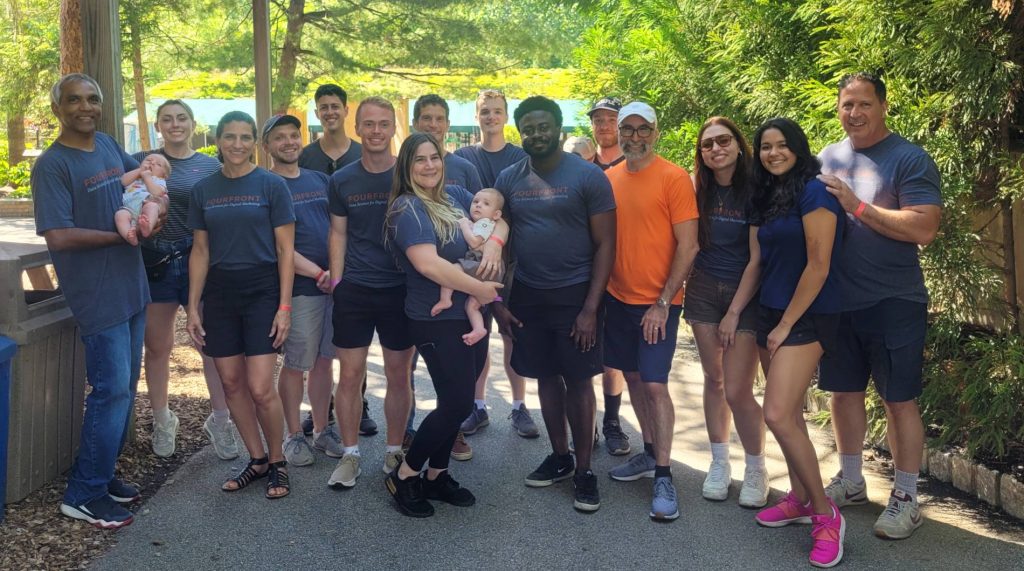The best businesses should be making a positive impact on not only their bottom lines, but also the lives of their people and the community (and society) around them. This is not only in the interest of doing good—it leads to business success, too.
This concept, known as Responsible Capitalism, is a growing trend in business and has acted as a guiding light for our own company.
What is Responsible Capitalism?
Responsible Capitalism applies a core set of values to identify ethics for this economic model. Here’s my definition:
"An economic and social philosophy that seeks to balance the interests of business with the interests of society and the environment. It is based on the idea that businesses should not only be concerned with maximizing profits, but also with contributing to the greater good of society and protecting the environment."
I have seen that when Capitalism is done right, it fosters competition, innovation, and economic growth. By allowing individuals to own and invest in businesses, Capitalism incentivizes entrepreneurial spirit and risk-taking, which leads to the creation of new products, services, and technologies. It encourages efficiency and productivity. The consumer makes the final decision, so a company needs to be architected to produce something that meets consumer demands at a profit.
Putting this approach into practice can be easier said than done.
How FourFront Practices This Model
FourFront is a digital marketing and analytics company that specializes in search engine optimization (SEO). We are committed to growing in a way that makes a positive impact on our people and our community.
Throughout my career I’ve had several small businesses, but none that required the agility of FourFront. During my journey I’ve witnessed management styles and business ethics that I didn’t agree with on a personal level. This negative influence was the motivation for creating FourFront in what I consider a responsible way. I founded the company knowing that cultivating innovation and a strong team culture would be required to keep the company relevant and profitable into the future.
These experiences have helped shape my beliefs. For example, I believe that a good company should not take. When you have a positive revenue stream, you have a responsibility to give back. For us, that includes:
Improving the people in and around the company
Our rule is that everyone who crosses paths with FourFront should be better for the experience. We make that happen through learning, creativity, and kindness. (This is also known as stakeholder capitalism, or a form of business that emphasizes the interests of employees, customers, communities, and the environment—as opposed to more traditional “shareholder capitalism.”)
Give people a chance
Failures should be a learning opportunity. I was given many chances in my career and I love to be able to pass that on to others. Unfortunately, this is not always the case in companies that are solely focused on profits.
Inclusive growth
As FourFront grows, we are generous in growing our team with us. This is evidenced by our strong employee retention. We are also exploring opportunities for additional profit sharing, particularly as we innovate and offer new products and services.
Employee wellbeing
We take work-life balance seriously, and believe in treating our team as people rather than “resources.” FourFront is proud of the culture we have established, and have worked with our team to define programs like flex hours, Flex Fridays, and our shift to permanent remote work that started during Covid.
Stay in the path of opportunity
You need to have a successful business in order to make a positive impact. It’s my job to make sure FourFront retains relevancy so that we can stay solvent and grow our business. This often comes down to creating a culture of innovation, which we have continued to hone in recent years by establishing internal systems such as an ideation tool we call Idea Factory and an Agile product validation team called Idea Lab.
This is not always easy. FourFront has faced several challenges over the years that challenged our team’s leadership to balance profit and purpose. But having clear values has helped guide us. We have said no to (or fired) clients who put undue stress on our team. We have also been in situations where we chose to trust the team rather than do what was easiest.
But in the end, we have always been better for sticking to these values. I credit our values with many successes, from retaining and attracting great people, to fostering innovation and increasing our profitability.
What’s Next?
FourFront is not the only company applying this model. The idea of responsible capitalism has gained traction in recent years, as more and more people have become concerned about the social and environmental impact of businesses. Many companies are now adopting responsible business practices and incorporating sustainability into their operations. However, there is still much work to be done to ensure that capitalism serves the greater good and creates a more equitable and sustainable world.
We also have big goals for ourselves and are not done. We want to do more to promote environmental good and to more directly impact our surrounding communities. The team has participated in many community outreach days and have provided analytics services to a locally-based nonprofit. We are also nearly paperless, and I am particularly proud of instilling an anti-single-use plastic ethos in our team! But I would like us to be doing more in each of these areas in the coming years.
We also want to do more to promote responsible capitalism to other businesses (and future small business owners).
Consider this blog post our first step toward sharing our process and practices with other businesses. In the spirit of collaboration, I also invite you to contact me on LinkedIn if you would like to learn more about how you can apply these principles to your business or to explore other partnership opportunities.









